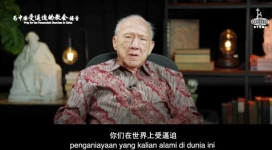
The World Health Organization released a statement on Wednesday stating that Ebola infections worldwide have hit the 13,000 mark with 70 percent of those cases resulting in death.
While the organization says that this epidemic is far from over, it may be slowing in Liberia with as much as a 25 percent reduction in cases week-to-week, according to The WHO's assistant director general, Dr. Bruce Aylward.
"Do we feel confident that the response is now getting an upper hand on the virus?" he told reporters during a press conference on Wednesday. "Yes, we are seeing slowing rate of new cases, very definitely."
But this slowdown has been experienced a few times already during this year as the number of reported cases doesn't necessarily reflect the number of actual cases. Many Liberians are afraid of going to crowded treatment centers for fear of being exposed to the horrificly over-crowded conditions, and most want to live out their final days with their families and be buried at home.
But this is where the real problems begin as Ebola victims are actually most contagious at death. Officials are hopeful that recent education programs are helping victims and their families realize this threat and seek proper treatment.
Dr. Aylward stated that even just a few improper burials could "start a whole new transmission chain and the disease starts trending upward again."
"I am terrified that the information will be misinterpreted and people will start to think, 'Oh great, this is under control,'" he continued. "That's like saying your pet tiger is under control. This is a very very dangerous disease."
Although it's too early to draw conclusions, Aylward remained optimistic that the global effort to fight the virus' spread is helping.
In the organization's most recent statistics, there are 13,703 reported cases total, with over 5,000 deaths worldwide. Almost all of these cases are in West Africa's Liberia, Sierra Leone, and Guinea.
In an interview with NBC News, Liberian President Ellen Johnson Sirleaf said that's she's not afraid that Americans will stop coming to give aid, but she is concerned. "We believe it's an overreaction," she said. "We understand the fears."
The Ebola virus first began spreading in Liberia, Guinea, and Sierra Leone in March of this year and, as the WHO's Dr. Margaret Chan calls it, is "likely the greatest peacetime challenge that the United Nations and its agencies have ever faced."
Ebola has no known cure, although most treated through experimental means in the United States have recovered fully. Earlier this week, nurses Nina Pham and Amber Vinson were both cured of the virus after providing aid to the nation's first confirmed case in Dallas, Texas in late September.







